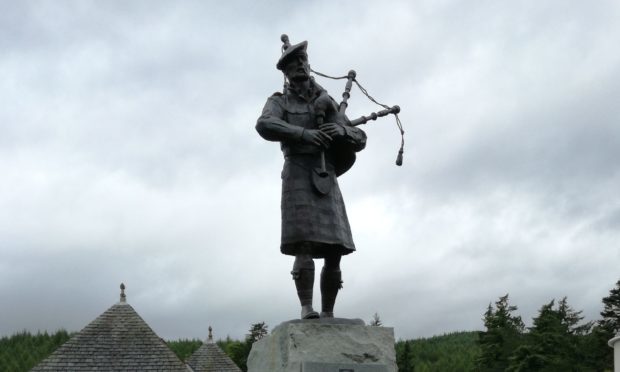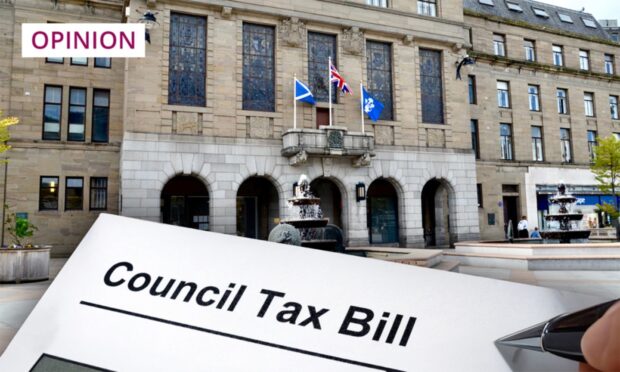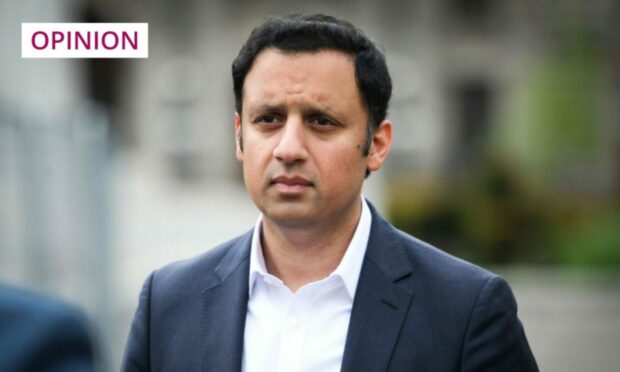Sir, – Like your correspondent Ken Guild (Men of the 51st deserve better, Letters, November 7) my husband and I watched the excellent Channel 4 programme concerning the 51st Highland Division in 1940.
However, I would like to assure Mr Guild that there is a large section of the Scottish population – and of people worldwide – who regularly remember the officers and men of the 51st.
We are the Scottish country dancing community!
As many of your readers may know, officers of the 51st Highland Division composed and practised a Scottish country dance in their PoW camp after the surrender at St Valery.
The instructions for this were sent to the mother of one officer in Perth, and the dance was taken up by the Perth branch of the Scottish Country Dance Society (now the Royal Scottish Country Dance Society).
It was called The Reel of the 51st Division, and became the first “new” (ie non-traditional) dance to be accepted by the society.
The Reel of the 51st has long been one of the most popular dances in the country dancing repertoire.
It is danced all over the world, and I have danced it in school and church halls as well as at grand balls in many places.
I have taught it to schoolchildren in Dundee, Fife and Perthshire – all of whom were told about its origins and the action at St Valery.
Earlier this week, at a gathering of the Tayside Scottish Country Dance Club in Newport, we were remembering those brave men as we danced the Reel of the 51st.
And yes, we talked about the events of 1940 before we danced it.
Helen Lawrenson.
Bay Road,
Wormit.
The families do not forget
Sir, – I would like to add to Ken Guild’s letter regarding the 51st Highland Division’s exploits in the aftermath of Dunkirk.
My father Robert Simpson was serving with the Cameron Highlanders at the time.
When the 51st were trapped at St Valery my father and some others commandeered a petrol tanker and made a dash along the French coast to Le Havre, managing to dodge the German aircraft.
From there, he and others were repatriated to Britain, among the handful of survivors of the 51st.
He was part of the reformed Cameron Highlanders who went on to serve in the Burma campaign.
He subsequently returned to Britain in 1944, whence he returned to France, where he was killed in action during the battle for Normandy.
JH Simpson.
Claypotts Place,
Broughty Ferry.
In gratitude from those who serve
Sir, – On behalf of the organising committee for the Royal British legion Scotland Festival of Remembrance held in the Caird Hall, Dundee, on November 3, we would like to convey our sincere thanks to those who made the night one to remember.
If I miss anyone, please accept my apologies, but they include the Lord Provost’s offices at Dundee City Council, staff and management of the Caird Hall, the Ministry of Defence and in particular the 51st Infantry Brigade, Poppyscotland and the Royal British Legion Scotland Headquarters team, the military bands from the services, the fantastic voices of Amy Hawthorn and Alison Ross, those members of the Armed Forces Regular, Reserve and cadets, Police, Fire, RNLI, Merchant Navy, Order of St John’s, and not forgetting the amazing war widows who carry themselves with such pride and, for the first time, the representatives from the Elizabeth Cross Association.
Thanks too to all the standard bearers from the Royal British Legion Scotland, the Queen’s colours and Area colours, and to the ministers from the represented denominations who led the Act of Remembrance.
Finally and not least thank you to those members of the public who came to the festival. Your enthusiasm and support is greatly appreciated. And please remember our armed forces are still serving in areas of conflict.
Although it is accepted that Remembrance Day is associated with the First World War, it is there for the many years of conflict, loss and injury. There has only been one year in which British troops have not been deployed to some area of conflict and the Festival of Remembrance is for these troops also.
Kindly mark your diaries for Saturday November 2 2019 and thank you all for your support.
Alastair W. McLean.
Strathmore Street,
Dundee.
Why my poppy sends a message
Sir, – At this poignant time of year I am reminded of elements of the argument against wearing poppies that are rarely if ever mentioned. It is not the people who fight a war that create that war, it is their political, cultural or religious leaders who do so.
Therefore, while the Act of Remembrance recognises those who made the sacrifice, far from glorifying war it serves as a salutary reminder to our politicians that it is their rhetoric and calls to defend the motherland –which usually involves attacking other’s motherlands – which is the problem. Compounded of course by the military-industrialists who make huge profits from that misery.
Politicians start wars and it is the people who pay the price for ending them. And I speak as an ex-soldier with 15 years of service.
Nick Cole.
Balmacron Farmhouse,
Meigle.
Britain’s blunder into war
Sir, – Britain’s entry into the First World War was the greatest error it made in its first two centuries of existence.
Apart from nearly one million servicemen lost, the cost was catastrophic. It was left in a much diminished state both strategically and economically with vast debts and many of its highly skilled work force crippled.
Even if Germany had defeated France and Russia, the new German-dominated Europe would have been much weaker than the British empire in naval and financial terms.
Given the resources we had in 1914, a better strategy would have been to wait and see what transpired because the Kaiser was no Hitler.
Of course arguments about honour resonate today, as they did in 1914, but too high a price can be paid for medieval notions of chivalry.
Britain had a tradition of realism in foreign policy and the fact is it would have been far better to consider the national interest rather than an outdated treaty with Belgium.
Rev Dr John Cameron.
Howard Place,
St Andrews.
No-smoke break without ire
Sir, – After reading the article about Dundee City Council’s ban on smoking and the divided offices for decades in today’s paper I had a wee chuckle to myself.
Being an ex-smoker I have seen this from both sides. I’ve been off the fags for a few years now but I haven’t stopped taking my smoke breaks. The only difference is I’m not smoking, I’m just having five minutes to myself.
My advice to these people moaning about smokers is to just get up and go away for five minutes while you stretch your legs or have a coffee.
Lee Grant.
Gannochy Crescent,
Montrose.
One patient, so much support
Sir, – My journey through the NHS started on September 30 when my wife called NHS24. An ambulance arrived within 10 minutes, the paramedics assessed my condition and I was taken to A&E at Ninewells Hospital.
Following further assessment I was transferred to ward 7 where more tests and scans revealed I needed an operation. I was in Surgical HDU after surgery then ward 10.
I was discharged on October 16 and my journey back to full health will continue through the chemotherapy unit.
To the paramedics, surgical team, nursing team, physiotherapists, cleaners, dieticians, kitchen staff, lab technicians, laundry service and porters and everyone else involved in my care, I am so grateful to you all for your skill, professionalism, dedication, care, compassion and laughter.
Bob Milne.
Montgomerie Crescent,
Dundee.









